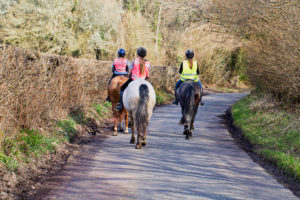How to stay safe on country roads (rural)
How to stay safe on Country roads
Winding rural roads make for a scenic drive in fine weather. However, they should be driven with care and respect. Think! the government road safety website states that 59% of all fatalities on the road are on Country roads. Here are some more alarming stats about Country road driving.
- 59% of all fatalities occur on country roads
- Three people die each day on average on country roads
- The number of people killed on country roads is nearly 10 times higher than on motorways
- In 2015, 10,307 people were killed or seriously injured on country roads in Great Britain
In this article, we’ll go through some tips to ensure you drive carefully on country roads.
Before you set off
 It’s important to ensure your tyres have good tread. Anything under 2mm is below the legal limit. A great way to check tyre tread is to place a 20p piece into the main tread grooves on your tyre. If the band around the outside of the coin is constructed by the tyre then your tyres are below the legal limit. There’s more on the tyre safe website.
It’s important to ensure your tyres have good tread. Anything under 2mm is below the legal limit. A great way to check tyre tread is to place a 20p piece into the main tread grooves on your tyre. If the band around the outside of the coin is constructed by the tyre then your tyres are below the legal limit. There’s more on the tyre safe website.
Check your brakes are responding as you expect. If you’re unsure then pop along to your local Halfords Auto Centre they offer a free brake check. op up your windscreen washer fluid.
Top up your windscreen washer fluid. If you’ve ever been splatted by a muddy puddle on a Country road. Or been behind a tractor covering your windscreen in dust from the road. You will know how much your visibility can be restricted. Ensuring you have plenty of washer fluid will help keep you safe on a Country road.
Give yourself plenty of time to reach your destination. Country roads can be very dangerous so avoid rushing or the temptation to speed by making sure you give yourself enough time.
While you’re on the road
Country roads are usually winding and varying in width too. So good concentration and thinking ahead is key to staying safe. Even if you are familiar with the road, a variety of obscured hazards could be in your path. Being cautious each time you drive a Country road will ensure you stay alert to hazards. Similarly, staying a safe distance away from the car in front will help you be more aware of potential obstructions.
Tackling bends and varying road surfaces
 When it comes to tackling the changes in road surface and bends in the road the key is to anticipate what potential hazards could be round the corner. Some roads will change in width so any oncoming vehicle could very well end up in your lane. Similarly, some Country roads are not maintained by local councils. This means they can become broken or have severe potholes which can damage your car. Other road users may be caught unaware by a large pothole and swerve towards you. You should be prepared for any eventuality. Not only that, there could be wildlife such as a deer around a blind bend so sticking to the speed limit for the area is sensible for your safety.
When it comes to tackling the changes in road surface and bends in the road the key is to anticipate what potential hazards could be round the corner. Some roads will change in width so any oncoming vehicle could very well end up in your lane. Similarly, some Country roads are not maintained by local councils. This means they can become broken or have severe potholes which can damage your car. Other road users may be caught unaware by a large pothole and swerve towards you. You should be prepared for any eventuality. Not only that, there could be wildlife such as a deer around a blind bend so sticking to the speed limit for the area is sensible for your safety.
The general advice is that you should brake before the bend rather than while you’re in it. This will ensure you retain maximum control of the vehicle while tackling a corner. If it is a blind bend you will also benefit from taking the corner at a slower speed enabling you to react quicker to potential hazards.
Speed Limits
A speed limit is the highest end of the speed you should drive at on that specific road. On most single carriageway country roads the limit is 60mph unless otherwise stated. Particularly treacherous roads have a limit of 40mph typically. If there is bad weather you should drive at a safe speed well below this higher limit. Especially on Country roads when the weather is bad. Bad weather is even more dangerous on Country roads. Wet or icy roads are a skid hazard and often aren’t on main gritting routes. Sheet ice and bends are a recipe for disaster. Studies show that most people drive Country roads at 48mph in good weather. This should give a good indication as to a safe speed in which to tackle a Country road.
Overgrown verges
Country roads are liable to overgrown verges and trees obstructing the view of road users. In cases where the road and road surface is obstructed by overgrowth then extra caution should be taken. Go slow until your view is no longer obstructed and can proceed without risk.
Passing obstructions
 Country roads are full of obstructions and slow moving vehicles. Tractors and farm vehicles can be passed but only when safe to do so. Don’t attempt to pass on blind bends, only pass when you have a clear view of the road ahead.
Country roads are full of obstructions and slow moving vehicles. Tractors and farm vehicles can be passed but only when safe to do so. Don’t attempt to pass on blind bends, only pass when you have a clear view of the road ahead.
You’ll also find that Country roads are prone to slow moving horses or cyclists.To pass a slow moving horse then you must proceed slowly and avoid revving your vehicle. Loud noises or fast moving vehicles can easily spook the animal and cause injury to the horse, it’s rider and other road users. Pass giving a wide berth and only when the opposite side of the road is clear. The same goes for cyclists. On Country roads, some cyclists have been known to cycle two abreast making it even harder to pass them.
Village residents
On rural roads, you will often notice speed restrictions when you approach small villages. This is for the safety of the residents and is strictly enforced. The speed can drop from a 60mph road to a 20mph road suddenly. The maximum speed limit through one of these villages is 30-40mph. Be especially cautious during school drop-off and pick-up times. Stricter restrictions and enforcement of these restrictions often occur during these times.
Watch for the signs
Official road signs should always be observed, and especially so for country roads. The signs will not only tell you of a safe speed limit but also where there are chicanes in the road. Helping to indicate what to expect of the road ahead. You’ll also want to look for unofficial signs on the road. Skid marks, broken fences or flowers tied to a tree are very good indications of a risky stretch of road. Take extra caution so as not to be the next victim of the road.
Keep your eyes on the road
While following all of the above tips you must also abide by the basic rules of the road. So, keeping your eyes on the road and eliminating distractions such as mobile phones or operating your in-car infotainment system while on a Country road will ensure there are no distractions.
If you manage to keep to all of these suggestions and rules you can reduce your risk of accidents on Country roads.
Fed up with looking for your next vehicle?
Need advice from an experienced Vehicle Specialist on what vehicle is right for you?
Book your FREE consultation now

1 Comment
Some say it’s not safe to travel the country road. But it can be one of your best and fun trips also as long as you are doing it safely. Yes, there are ways and tips on how to travel safe in a country or rural roads. And it’s a good thing you are able to discuss it here in your post.